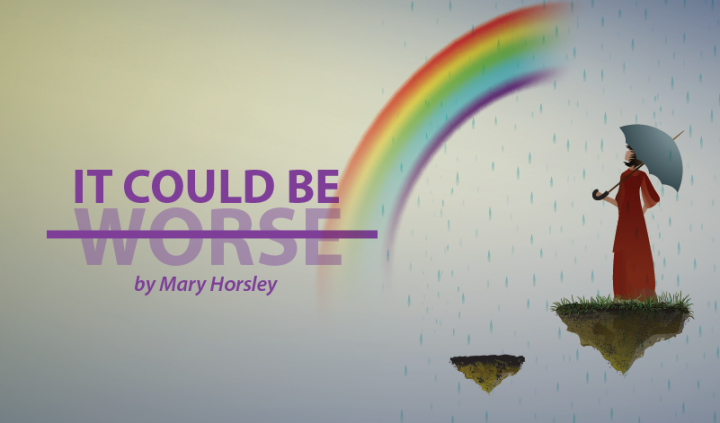Crohn’s disease and ulcerative colitis symptoms and treatment side effects lead to larger problems, such as nausea and vomiting. With IBD, nausea and vomiting are not uncommon, but they can become problematic if not addressed as part of disease management.
I’ve had issues for years with vomiting, dropping weight, and losing essential nutrients, and it is causing more problems with my Crohn’s disease management.
Vomiting and nausea with Crohn’s disease and IBD can be due to bowel-wall thickening, strictures, inflammation, obstructions, and medication side effects.
Excessive nausea and vomiting can lead to dehydration, malnutrition, headaches, teeth erosion, and more. Vomiting longer than a day or so is worrisome.
Dehydration is a major concern, as I mentioned in a past column, “Dehydration and Diarrhea with Crohn’s Disease and IBD.” When the body becomes dehydrated, it can cause more problems such as headaches, dizziness, fatigue, a lack of energy, extreme thirst, muscle cramps, an inability to sweat, and even dry eyes.
As I mention in the column titled, “My Premedication Regimen for Biologic Treatments,” Phenergan (promethazine) and similar medications are used to ease nausea and vomiting. Phenergan is a treatment I take daily — especially before biologic medications and before eating. These premedications prevent nausea and vomiting as well as allergy-related symptoms.
In addition to Phenergan, Benadryl (diphenhydramine) and Zofran (ondansetron) have been helpful for me in the past, as well as prochlorperazine, which is my new anti-nausea medication to replace my promethazine prescription.
There are a few other options when dealing with nausea, such as eating small meals, dry crackers, and the like, and ginger mints — or anything with ginger in it — usually settle an upset stomach. Hard candies, like peppermints, can help that nauseous feeling, too.
***
Note: IBD News Today is strictly a news and information website about the disease. It does not provide medical advice, diagnosis, or treatment. This content is not intended to be a substitute for professional medical advice, diagnosis, or treatment. Always seek the advice of your physician or another qualified health provider with any questions you may have regarding a medical condition. Never disregard professional medical advice or delay in seeking it because of something you have read on this website. The opinions expressed in this column are not those of IBD News Today, or its parent company, BioNews Services, and are intended to spark discussion about issues pertaining to IBD.



I have experienced stomach pains the runs and projectile vomiting
for many years around 35 years. When the ailment started I was told it was irritable bowel syndrome after having an end scope down my throat into my stomach.
I have suffered stomach cramps sickness and the runs flatulence
feeling I had the flu and general malaise and painful legs a lot of the time. I put this down to my forthcoming heart attack and bypass surgery. But still the above continued few years later I developed Diabetes type 2. My bowels worsened and the pain has increased I have today been diagnosed with croans discease.
Is it has taken many tests to come to this conclusion is it possible to suffer croans without treatment for at least 30 years without treatment?
Yes, it is quite possible – though I think you would have had such serious issues that you would have seen a doctor if you had it for 30 years. Most people are diagnosed with Crohn’s in their late 20s. I personally know I had it when I was a teen but wasn’t actually sick enough to seek treatment and get diagnosed until my 20s. I found out when I had several feet of my intestines removed in an emergency situation (obstruction). I have known several people that were diagnosed with UC/Crohn’s later in life. Crohn’s is not alot of fun. Learn all you can. Eat well. Chicken and potatoes when flaring and then for variety eat potatoes and chicken (joking). Good luck.